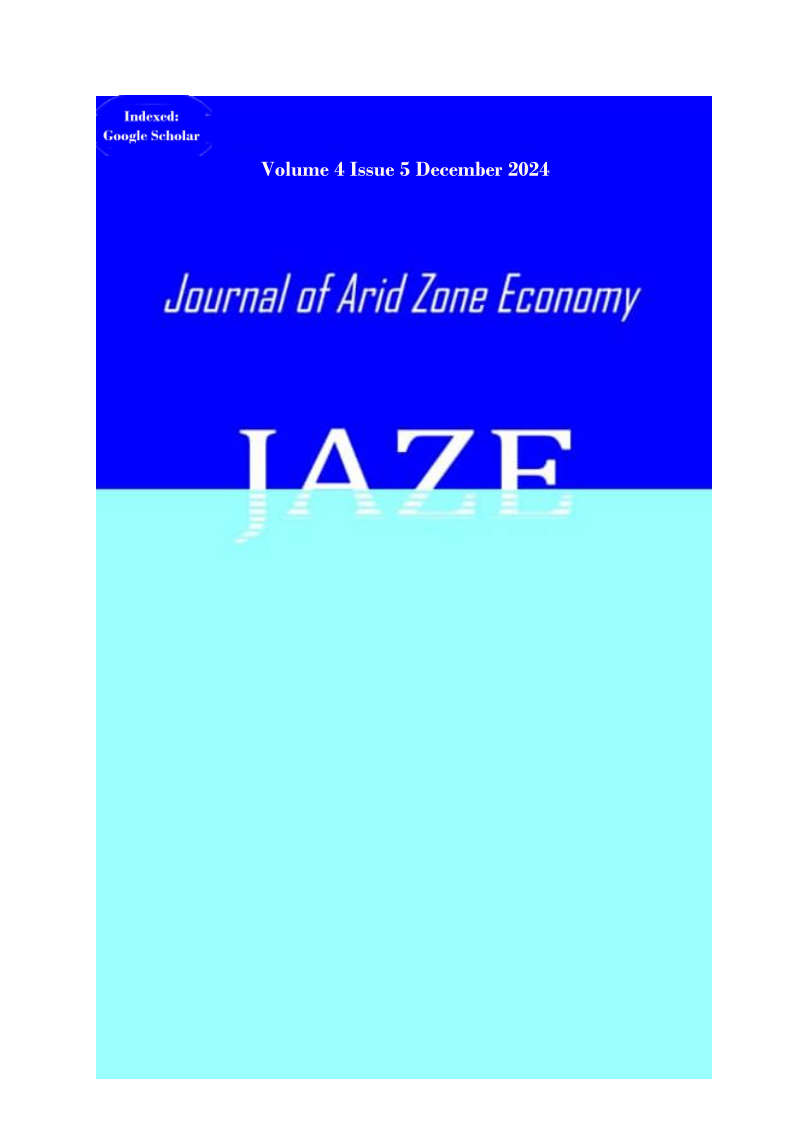Effect of Foreign Direct Investment on Human Welfare in Nigeria: 2000-2022
Keywords:
Foreign Direct Investment, Human Welfare, Human Development Index, Exchange rate, Trade OpennessAbstract
This study examines the impact of Foreign Direct Investment on Human
Welfare in Nigeria between 2000 and 2022. Human development index
was used to measure human welfare while foreign direct investment
inflows, exchange rate, trade openness, interest rate and inflation rate
were used as the explanatory variables. The stationarity test shows that
human development index and inflation rate were stationary at levels
while foreign direct investment, exchange rate, trade openness and
interest rate were stationary at first difference. The study utilizes the
Autoregressive Distributed Lag (ARDL) modelling approach to examine
the relationship between the variables. The results indicate that there is
long-term significant impact of foreign direct investment on human
welfare. The contegration result also shows that only the exchange rate
had a short run significant impact on welfare at 5% level. The study
recommend that government should formulate and implement policies
that will enhance foreign direct investment into the country and should
curb repatriation of profits by foreign investors through encouraging re-
investment in the host country so as to improve human welfare and grow
the economy.

Downloads
Published
Issue
Section
License
Copyright (c) 2024 Journal of Arid Zone Economy

This work is licensed under a Creative Commons Attribution 4.0 International License.

